A tradition I used to do in my yearbook was to write down the five films that empowered me throughout that school year. For my senior year in 2008, that list included 1991’s Thelma and Louise. A film that many thought would bring on this great change to the frontier of women-centric cinema. As Thelma’s actress Geena Davis would go on to say in many interviews and her book, Dying of Politeness, that great change didn’t miraculously happen.
What did happen, and continues, is that Thelma and Louise became a beacon of empowerment. I don’t believe screenwriter Callie Khouri (who would go on to write and direct one of my other all-time favorites: The Divine Secrets of the Ya-Ya Sisterhood) or director Ridley Scott went into Thelma and Louise with some great feminist agenda. Instead, I believe sometimes the stories we tell go on to have a life of their own and take on new meanings depending on who they reach.
By the time Thelma and Louise reached me, I was about 13. Buffy Summers and Willow Rosenberg, Idgie Threadgoode and Ruth Jamison, and the Halliwell Sisters were characters I loved and whose complex relationships and dynamics I found myself being inspired by. In my little bubble, it never occurred to me that there could have been a time when it was nearly unheard of to have multiple women going out and having adventures as the boys do.
Khouri has said many times that she originally penned the concept of Thelma and Louise on the thought that “two women go on a crime spree.” While Ridley Scott, who had to be convinced, was originally only going to be a producer. He changed his mind to direct after he struggled to find a director who believed in the project enough to take it on.
The story structure Khouri uses in Thelma and Louise isn’t really different from other buddy films. Heroes start off on a simple quest but find themselves in trouble, and make decisions that end up putting them in more trouble. In The Blues Brothers (1987), two brothers want to save the orphanage they grew up in, so they decide to get their band back together to raise money and are met with a lot of obstacles. In The Man Who Would Be King (1975), two English soldiers decide they’ve had enough and come up with a plan to travel to a foreign land in order to become kings. Their lies soon become more than they can handle.
For those who may not remember, Louise (Susan Sarandon) decides to take her best friend, Thelma, up to a cabin in the woods for a girl’s weekend. Their plans get derailed when Thelma is almost rapped. Louise manages to stop the assault and in the heat of the moment kills Thelma’s attacker. The two decide to head to Mexico but a string of unfortunate mishaps cause them to fall deeper into danger. Eventually, they find themselves trapped at the edge of the Grand Canyon. Not wanting to live a life behind bars (or let’s face it, head to the electric chair) they decide to go out on their own terms while sticking it to “the man” or in this case the society that has failed them.
It would take years of developing my taste in cinema, my love for complex women, and my understanding of how far females have come in society to have the deeper appreciation for Thelma and Louise that I do today. That said, these women are far from characters that should be emulated in any sort of way. I feel audiences like to pick and choose which aspects of a film to take away. When originally released, the film received a lot of backlash from people who claimed it was man-hatey. Nowadays, I think viewers look at the film and overlook the fact that Thelma and Louise are very damaged people who just grow to be more toxic to one another as the film goes on.
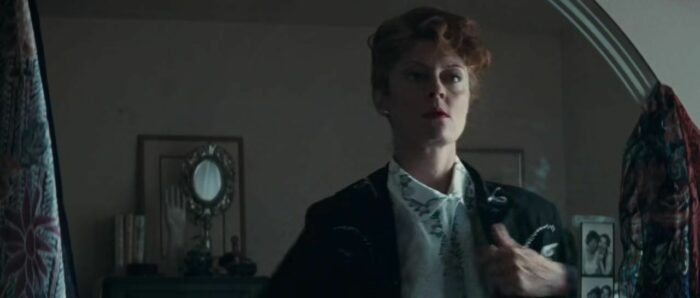
Louise is a woman who, when we meet her, is one gigantic, steel-enforced wall that refuses to let anything in. She’s become this cold person because of a traumatic event that happened to her in Texas, and Thelma is later able to put it together as being from something similar to what she experienced at the start of the film. Louise didn’t have the support system to fully process her trauma so she’s carried it with her. I have never been through a sexual assault but I have had experiences where I felt powerless with nowhere to turn except inward. Those of us who process like this are ticking time bombs.
The moment Louise shot Thelma’s attacker was the moment a tiny crack formed in her wall of emotions. With the inability to get ahead of everything, because this is how she keeps in control, that crack splinters until it bursts and those years of withholding her trauma start to pour out. There is a moment where Louise contemplates giving herself up and it isn’t because she really thinks FBI Agent, Hal (Harvey Keitel) can actually help, it’s because she’s reached this point of existence where being the responsible, strategic one got too exhausting and was no longer helping.
I find myself wanting to help Louise and by doing so wanting to dislike Thelma, but I can’t. It’s not because I’m a Geena Davis super-fan who will find some way to defend any character she portrays. (I am. by the way.) It’s because Thelma is basically every woman who has been forced into a box. I understand, especially given my New England French Canadian family, and their classic beliefs on how a young lady should conduct herself, Thelma was the product of her environment. Similarly to Thelma, I’m loud and often am told to quiet down. I also thought I knew my place when it came to interacting with certain people and would fear whenever I was presented with a situation that would make me step outside that structure. I found myself being afraid to have fun because, in the back of my mind, I would be telling myself that I wasn’t allowed to.
If you were to tell me now that I was Thelma? I would probably say something along the lines of, “I’m what Thelma could be if she got some proper help.” Therapy is a great tool, people!
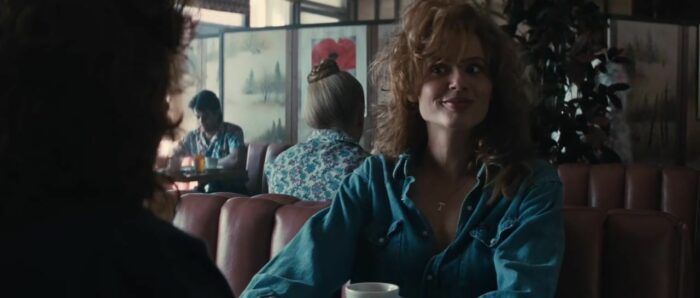
My problem with her lies in the fact that outside her initial attack, because that wasn’t her fault, it was Thelma’s actions that ended up causing the most damage. If my best friend gave me an envelope that contained their entire savings the last thing I would do is leave it out in the open. Whoever said, “The best hiding spot is in plain sight.” was clearly not talking about someone’s life savings. I would hide it the best way I possibly could because if anything were to happen to it at least I could say that I had tried to keep it safe. Thelma was living so much in the moment that I doubt this thought even occurred to her. She was more excited to give Louise that extra boost about going to see Jimmy.
I’m happy to have scenes where the women encourage one another to let loose or show support after a one-night stand. They’re important to show that women can have healthy relationships with one another but they shouldn’t take away from the common sense of the situation. If you are handed your best friend’s life savings (Yes, I will bold it because we’re not talking about pocket change, this was a woman’s entire existence!), you can say the supportive thing while still hiding the money!
Then there’s when her friend is having a complete meltdown (as one would if your life savings went poof). Instead of logically calming her down and talking through a plan, she decides to do the first thing that pops into her head: armed robbery! This is because the type of person Thelma shows herself to be is someone who will always think in the moment instead of logically in the long run. It’s shown in how she packs with no care and how she leaves dinner out for her husband. Sure, it’s a nice gesture to leave dinner for your husband but let’s be real, that food is going to spoil by the time he gets home. I’ve lived a large part of my life doing similar things. I constantly lived in the moment and when something would go wrong I would drown myself in trying to fix it because my attempts would be met with making the situation worse.
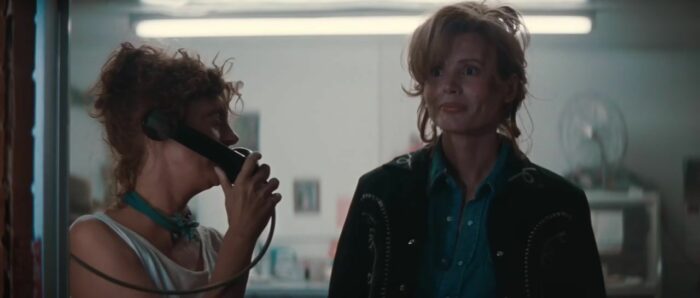
Each time Thelma got them in deeper, there it was, “I’m sorry, Louise”. Never once could she go “oops” and acknowledge her responsibility for what was happening. For her, it constantly comes off as if it were a game. It’s all groovy that you found your calling Thelma, but do you mind holding back just a little? Just long enough for your friend to get out of a country where, if caught, she could be executed? Armed robbery… you’ll serve some time. But murder? That will get you a one-way ticket to the Green Mile.
Cat Smith said it best in her The Man Who Would Be King article, “Nowhere in Thelma and Louise is there an honest owning of responsibility…” Not one. Not even when her best friend is about to drive into the Grand Canyon do we get Thelma being the one saying “I think I got us into a situation where we can both get killed.” Instead, we have her questioning if the fact that the situation has escalated into a car chase could possibly be her fault and because Louise is constantly her protector, she tells her it isn’t. But it is though! All I want is for one honest owning of her actions because as Hal says, “they had a chance.”. Sure J.D. (Brad Pitt) took it away from them when he stole their money but Thelma lost their chance the moment it never occurred to her to hide the money in the first place.
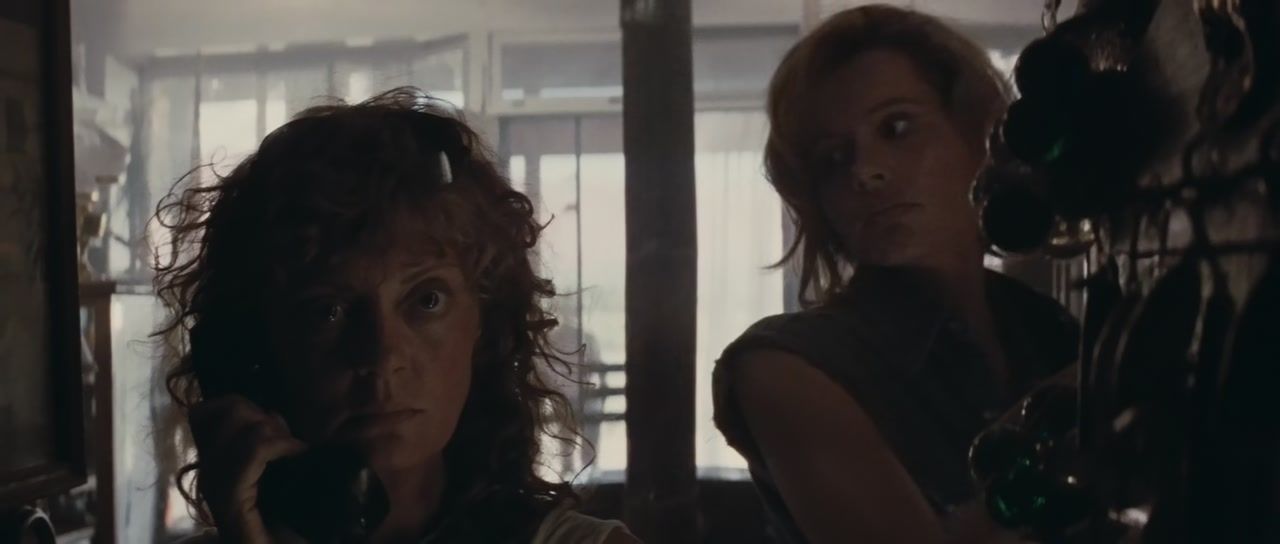
I’m all for the ride-or-die bond these women have but I also feel there comes a breaking point. Women can be allowed to have a moment where they are at their lowest and question their friendships. They can have that moment like many men seem to, where they turn to one another, admit that they’ve messed up, and then move on. It just seems to never occur in Thelma and Louise and I think that small detail holds the film back some.
If anything, I think how Thelma and Louise have inspired me most is through the happenings behind the scenes. Callie Khouri refused to sell her script to anyone who wanted to make it more marketable by changing things. According to her, one of the companies actually said, “Well, you know, you can’t have her actually kill the guy.” in regards to the man who assaults Thelma. Geena Davis says in her book that it was meeting Susan Sarandon on this project that enlightened her about becoming more assertive for herself. That, of course, has since led to her taking on so many empowering roles, including the President of the United States (I will never stop being hurt by Commander In Chief being canceled), and creating the Geena Davis Institute On Gender in Media where she is constantly fighting for equality behind the scenes and on the screen. These stories of empowerment embody the true legacy that Thelma and Louise have left.
There’s a feature on Letterboxd that allows people to create film lists that others can follow. When I first joined I made a list titled “Strong Women For the Women of Tomorrow” which is basically compiling all my yearbook lists and adding to them as I’m introduced to more women-centric, inspiring stories. Yes, that title could use a little work but it’s better than “Movies for Your Budding Feminist”. Thelma and Louise are on that list because it is a film that sparks the passion that lives inside and challenges us to be our stronger selves. It may not have led to the revolution people were hoping it would, but it continues to be something that generations of girls can look back on, be inspired by, and learn from.


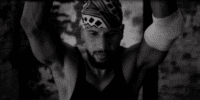
…in reality Louise would never, ever, in a million years leave her money with Thelma. This is one of many Hollywood manipulations in this movie, including “I’m going to Mexico.”
Louise pulling the trigger on the rapist is another trick to get the story moving; in reality she would probably not have killed him.
Even with a crime of passion, in reality sooner or later the two women would have come to their senses and turned themselves in. Probably.
But then there would be no picture, right? If Hamlet kills the King in the first act there’s no play.
But if you cheat the audience in order to sell them female power fantasies ~ as this movie does throughout ~ it must be done with finesse and a grounding in reality. Too many fantasies in this picture.
I believe that is why “It may not have led to the revolution people were hoping it would.”
Trying to force an upbeat symbolic ending with the car in freeze frame was another mistake; the T-Bird should have dropped out of sight. The sentimental curtain-call denouement shots were also completely wrong.
I loved Thelma and Louise, the two characters played by Geena & Susan. That’s what sold this movie to me.